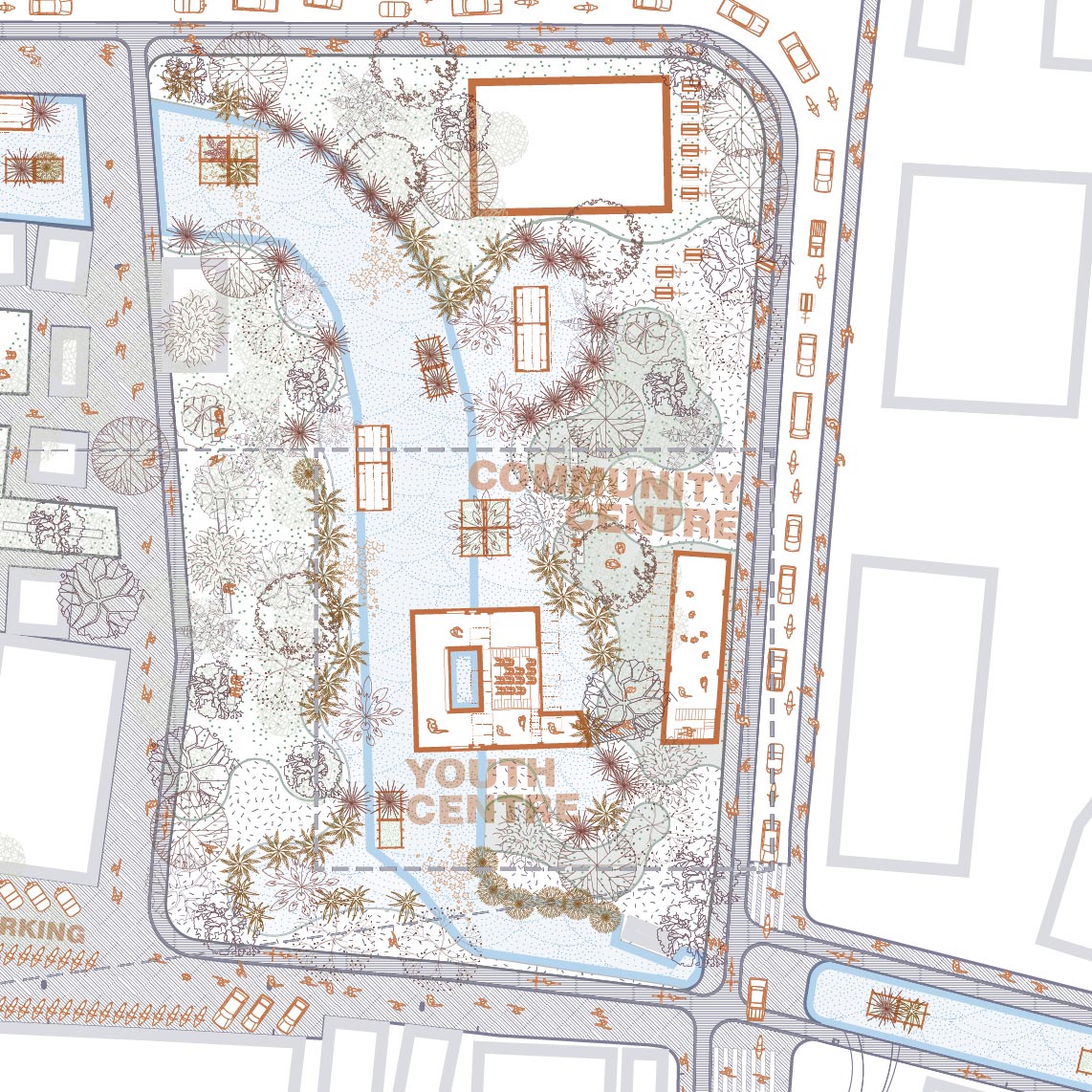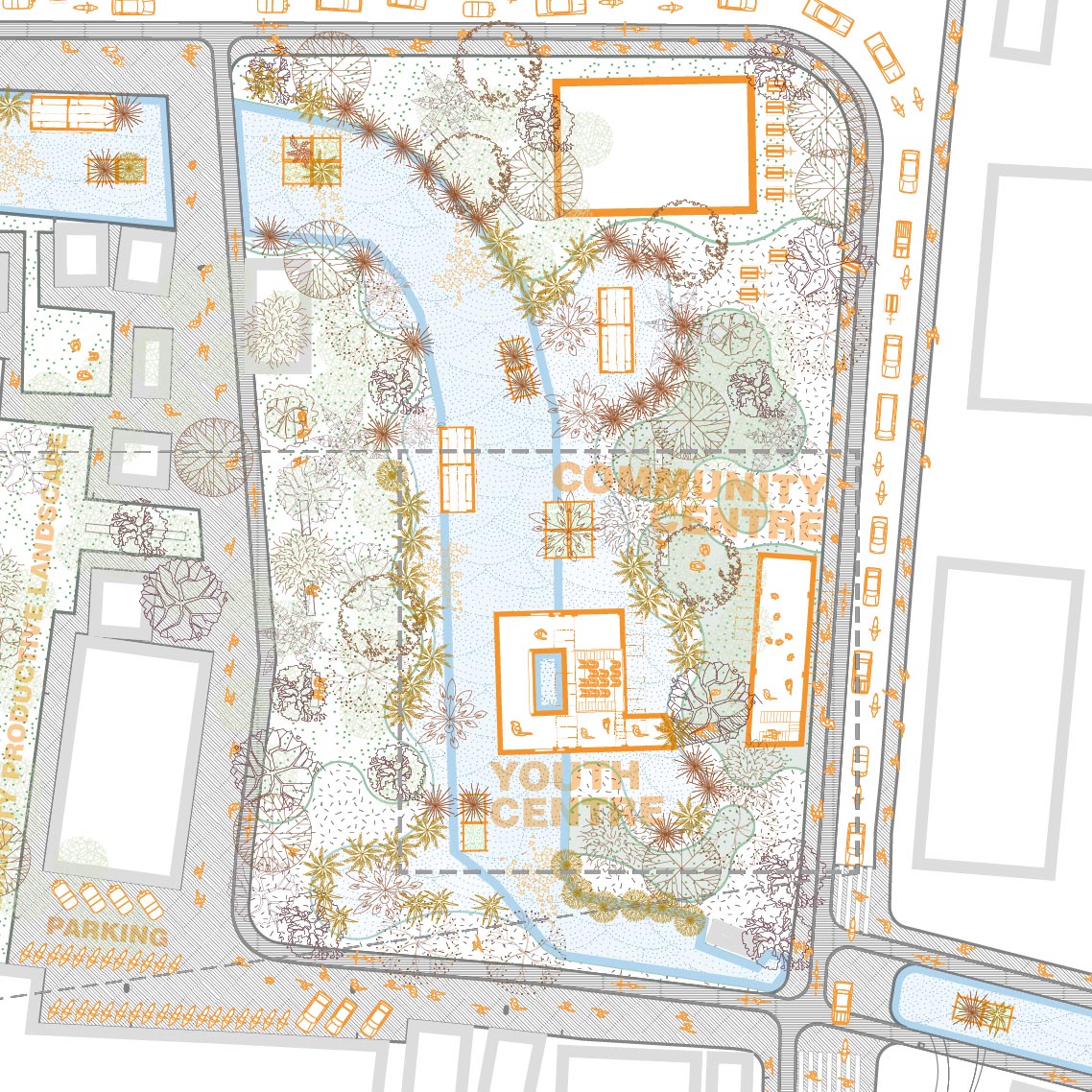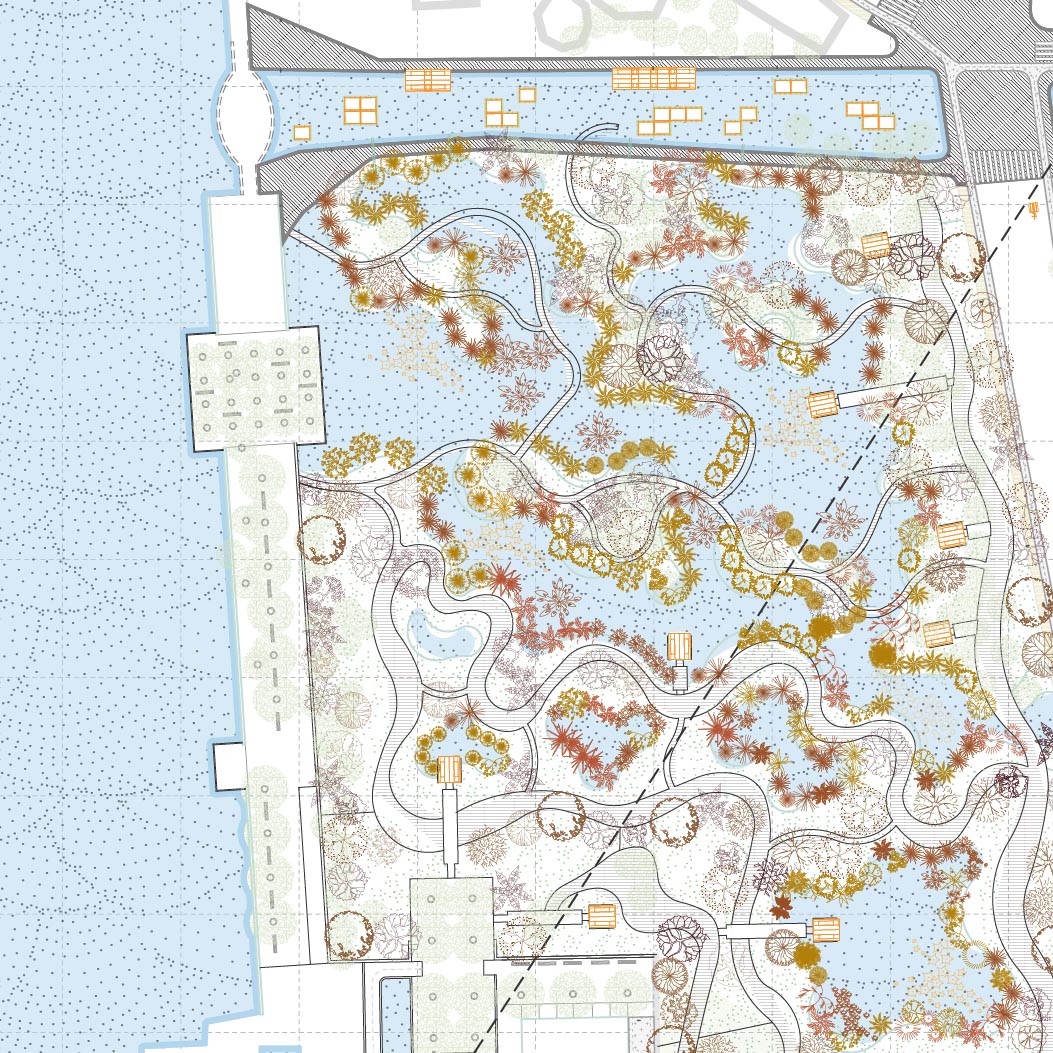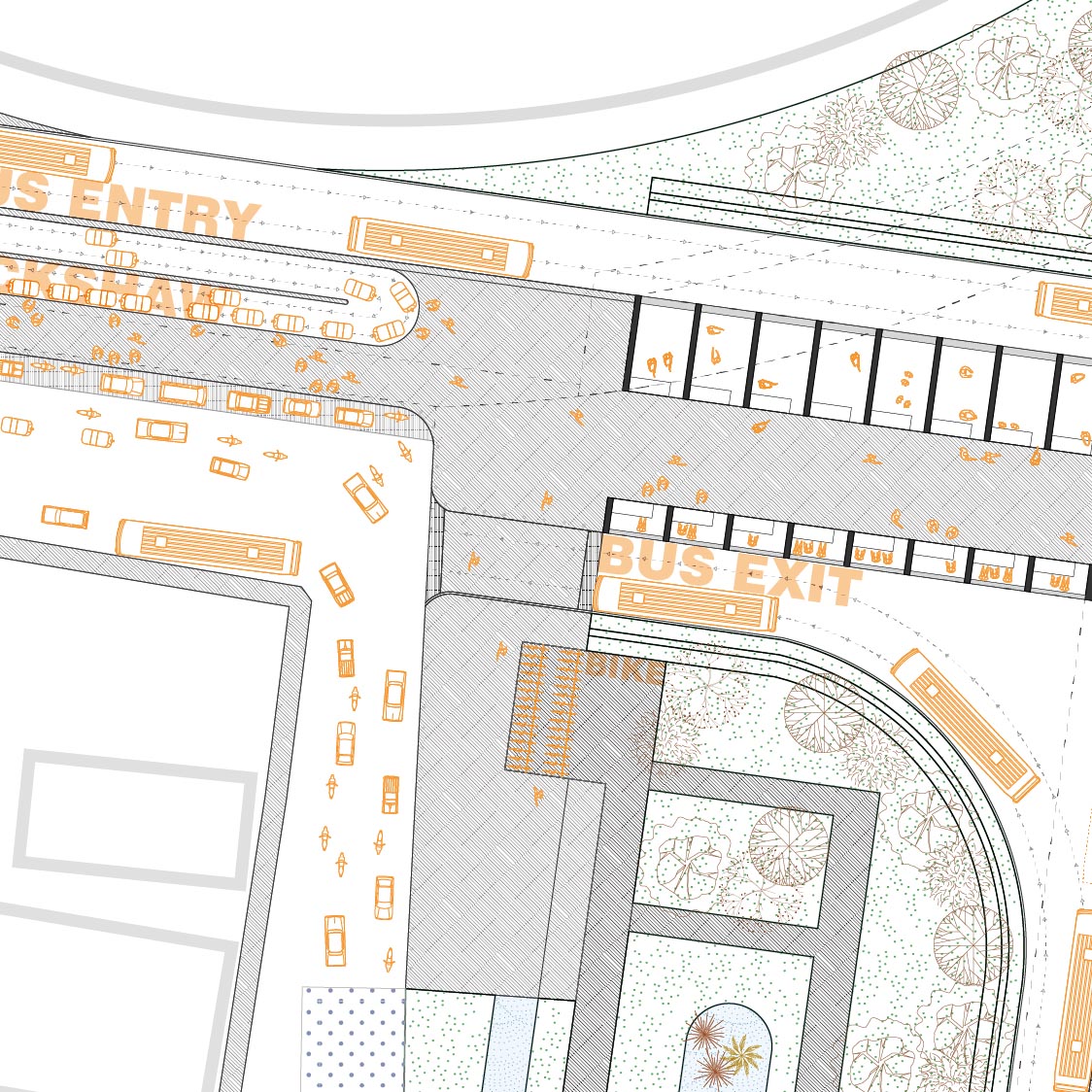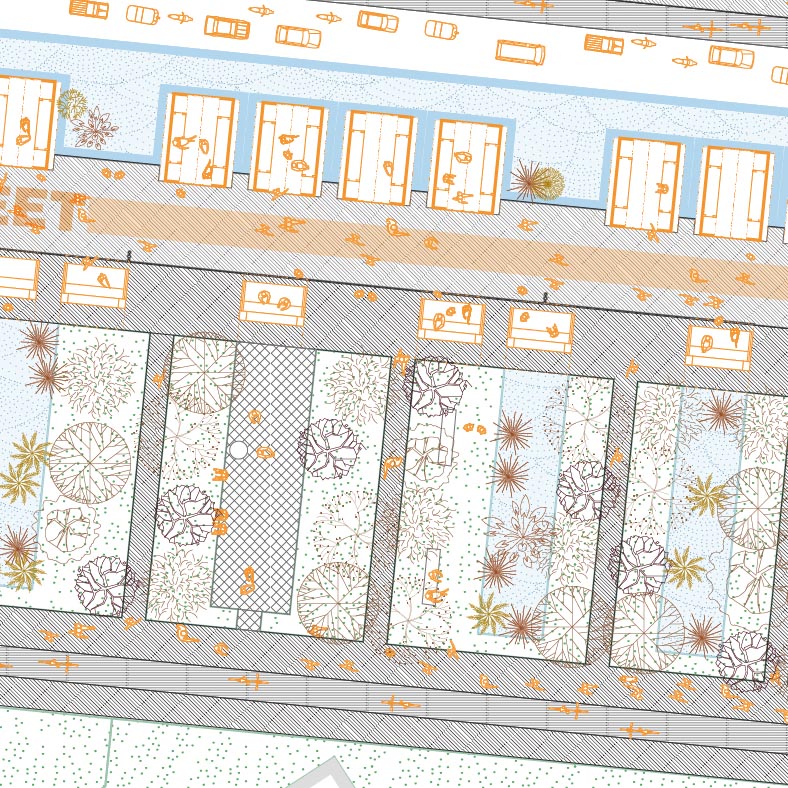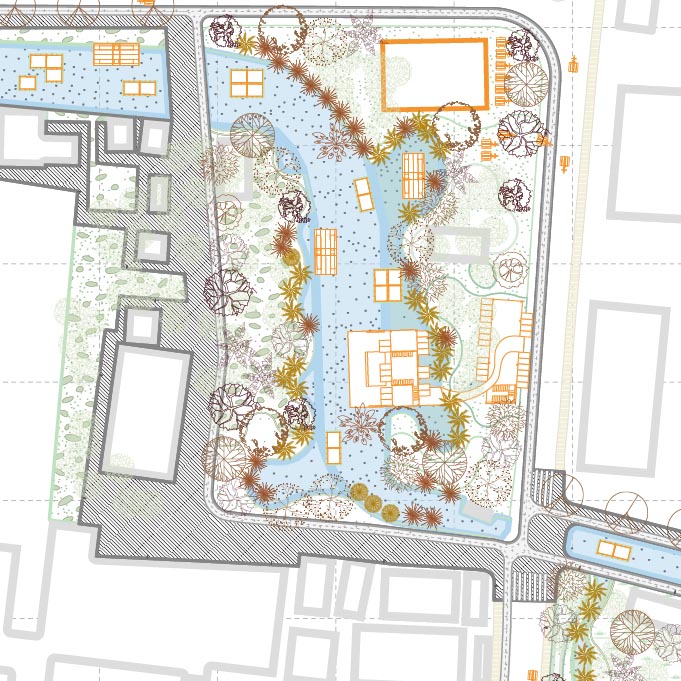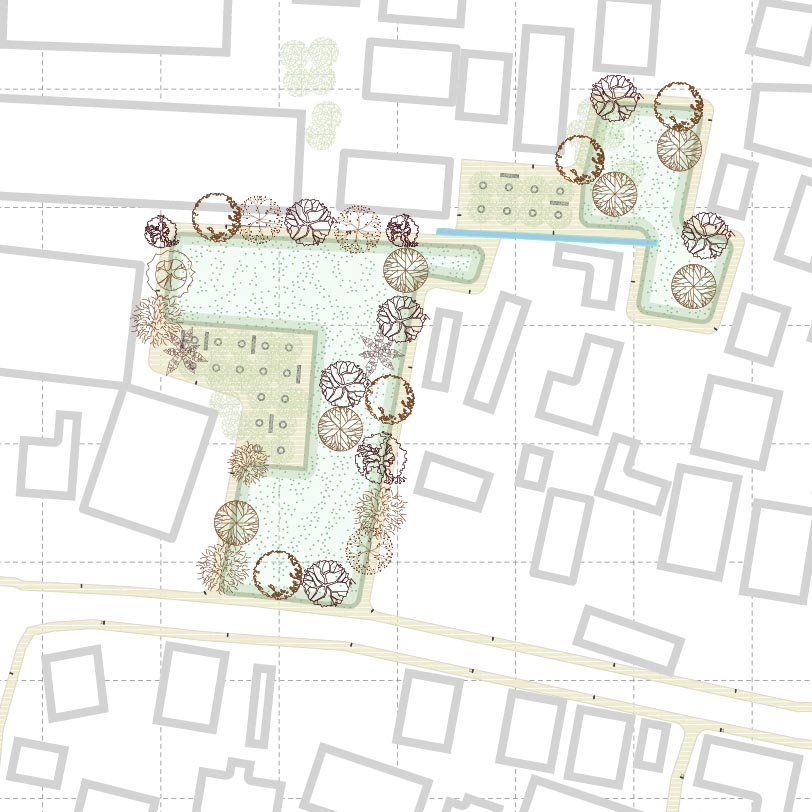Project BOTANIZING THE ASPHALT received special recommendation from the jury for its “sound approach to ecology” at the EnteKochi national Urban Design Competition. The project was proposed by a team comprising of Sonal Mithal, Sebastian Trujillo, Kruti Shah, Prasanth Narayanan, Shalini Prakash, and Mansi Shah who are associated with the CEPT University as faculty members. The team was among the top five teams from approximately 120 entries. The jury process was rigorous, going through multiple rounds of voting to identify three winners, and two special recommendations.
Summary of the project
Botanizing the asphalt situates itself within the Deleuzian model and treats urban-landscape design as a form of activism that proposes an urban-ecology resulting from non-linear networks of urban processes—such as waterways, agronomy, human movement, safety, economics, and social dynamics. Emphasis is on creating conditions for these networks to activate, strengthen, sustain, and re-emerge as new possibilities for a continued and enriched urban experience. Deleuzian alliances enable interdependency among various life-forms and environment; transecting nature-culture divide; and encouraging adaptability. Here, social dynamics are assemblages of networked communities; and cities are assemblages of people, networks, and infrastructure. The title is adapted from Walter Benjamin’s “Botanizing on the Asphalt,” which invites us to consider the vitality of the city as a particularly fertile and diverse domain of natural life. In removing the “on” from Benjamin’s articulation; this project rejects the implicit binary between humans and ecology, rejects the implicit male-gaze over the expansive urbanscape, and proposes a framework that imagines the citizens of the Mullassery Canal precinct as active components of its urban ecology. Such a position helps the project prioritise its non-negotiables—identifying and reviving the broken ecological networks, and integrating them with social and economic agendas.
The project re-establishes HYDRO-HUMAN-PHYTO INTERDEPENDENCY. The intervention is infrastructure-centric motivated towards activating the canal and surrounding ecology to facilitate various networks of education, productive landscapes, livelihood, and mobility. The project operates at four scales: Large [master plan], Medium [neighbourhood], Small [street, plot], and eXtraSmall [individual unit]; and offers five Infrastructure Botanization as interventions: Blue, Blue-Green, Social, Transit, and Light.



